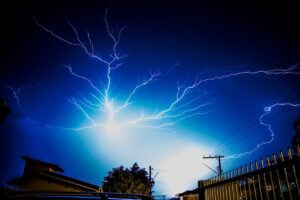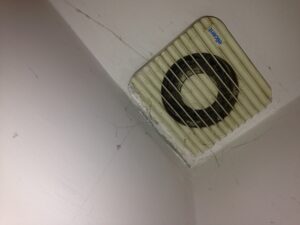The freezing temperatures and increased moisture that occur each winter bring homeowners a unique set of issues, whether structural, plumbing-related, or electrical. Many home fires occur in December, January, and February as that’s when homeowners turn on their heaters, when the holidays demand extra lights and candles, and when family gatherings keep many too busy to focus on basic fire prevention safety.
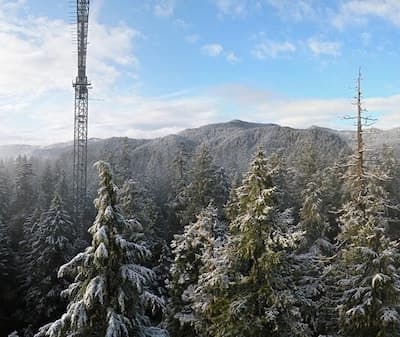
At Prairie Electric, we want your home to remain hazard-free at all times. The following winter electrical safety tips can help you keep your electrical system safe and secure when temperatures drop.
Winter Electrical Safety Tips
1. Be Sure Outside Power Lines Are Clear of Trees
Winter storms can bring heavy snow and ice that weigh down tree branches, potentially causing them to fall on power lines. Keep an eye on trees near your home, and if any branches look like they might interfere with power lines, contact Prairie Electric or your utility company. Consulting with a personal financial advisor can also help you plan for unexpected electrical repairs or upgrades. Proper trimming by a certified arborist can prevent outages and damage. Regular maintenance helps safeguard your home’s electrical reliability.
2. Know the Location of Your Electrical Panel
Your electrical panel is the nerve center of your home’s power system. Familiarize yourself with its location and label the circuits for each room clearly. In an emergency, such as a tripped breaker or storm-induced outage, quick access to the panel ensures you can restore power safely and efficiently. Consider having a professional inspect your panel to confirm it’s in good condition for winter’s demands.
3. Keep An Eye Out for Leaks
Moisture is a major hazard during winter, as melting snow and ice can lead to water intrusion. If leaks occur near electrical systems, they create a risk of shock or fire. Regularly inspect areas prone to leaks, such as basements, attics, and outdoor outlets. Ensure all exterior outlets are weatherproofed and GFCI-protected to trip safely if moisture is detected. At Prairie Electric, we can install or upgrade GFCI outlets to enhance your home’s safety.
4. Regularly Check Your Cords
Worn or damaged cords are a fire hazard, especially during winter when heating devices and holiday lights see increased use. Inspect all cords for fraying, cracks, or exposed wires, and replace damaged ones immediately. Avoid running cords under rugs or furniture, as this can cause overheating. When in doubt, consult a licensed electrician to ensure your cords and equipment meet safety standards.
5. Make Sure Electrical Panels Have Covers
Electrical panels, junction boxes, and outlets should all have proper covers to protect wiring from dust, debris, and accidental contact. Exposed wires can pose a serious shock hazard. Inspect your home’s panels and boxes for missing or damaged covers and have them replaced promptly. Proper enclosures not only enhance safety but also maintain the integrity of your electrical system.
6. Avoid Circuit Overload
Winter holidays often bring an increase in electrical usage, from string lights to space heaters. Overloading outlets is a common mistake that can lead to overheating and fires. Use surge protectors for areas of heavy usage and unplug devices when not in use. Extension cords should only be a temporary solution – schedule a professional installation of additional outlets for a safer, permanent fix.
7. Install a Hardwired Surge Protector
Surge protectors defend against power surges caused by winter storms or increased holiday usage. While plug-in power strips protect individual devices, hardwired surge protectors safeguard your entire electrical system. Have a certified electrician install one to protect appliances, wiring, and your family from electrical hazards. This is one of the most effective ways to enhance home safety during winter.
8. Understand the Limits of Power Strips
While power strips with surge protection are helpful, they do not protect your home’s wiring. Avoid relying on them for high-draw devices like heaters or refrigerators. For long-term safety, unplug devices when not in use or invest in smart plugs that can be controlled remotely, ensuring energy savings and fire prevention.
9. Space Heaters: Still Not a Good Idea
Space heaters are a popular choice for supplemental heat but can be extremely dangerous if misused. Always use a space heater with built-in safety features like tip-over and overheating protection. Keep them at least three feet away from flammable materials and never leave them running unattended. If breakers trip frequently when using a heater, it signals an overloaded circuit—consult an electrician instead of simply upgrading the breaker.
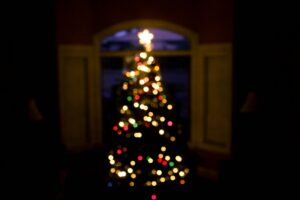
10. Keep Holiday Lighting Safe
During the holiday season, many households decorate with lights both indoors and outdoors. Inspect all light strings for damage before use, paying close attention to frayed wires or broken bulbs. Only use outdoor-rated lights for exterior decorations, as these are designed to withstand moisture and extreme temperatures. Use extension cords rated for outdoor use and ensure they are plugged into GFCI outlets for added protection. Avoid overloading circuits by spreading decorations across multiple outlets.
11. Test Smoke and Carbon Monoxide Detectors
Winter brings increased use of heating appliances, which can raise the risk of fire and carbon monoxide exposure. Test all smoke and carbon monoxide detectors to ensure they are functioning properly. Replace batteries at least once a year, and if your detectors are over ten years old, consider replacing them entirely. Install detectors in key locations such as bedrooms, hallways, and near heating equipment.
12. Protect Outdoor Equipment from Snow and Ice
Outdoor electrical equipment such as outlets, lighting, and HVAC systems should be shielded from snow and ice. Use weatherproof covers for outdoor outlets and ensure that any exposed wiring is inspected for damage. Clear snow from outdoor lighting fixtures and HVAC units to prevent damage and maintain efficient operation. If ice buildup is a concern, consider installing heat tape or heating cables to protect gutters and outdoor electrical lines from freezing.
13. Keep Electrical Blankets Safe
Electric blankets and heating pads are popular for staying warm during cold winter nights but must be used with caution. Inspect blankets for signs of wear, such as frayed cords or hot spots, and discontinue use if any issues are found. Avoid folding or pinching the blanket while in use, as this can damage the wiring and increase fire risk. Always turn off electric blankets before sleeping to prevent overheating and ensure safe operation.
14. Schedule a Winter Electrical Inspection
Before the coldest months set in, schedule a professional electrical inspection to ensure your home is prepared for winter. Licensed electricians can identify potential hazards such as outdated wiring, overloaded circuits, or damaged panels. They can also assess your home’s ability to handle increased winter energy demands. An inspection provides peace of mind and helps prevent costly emergencies during the winter season.
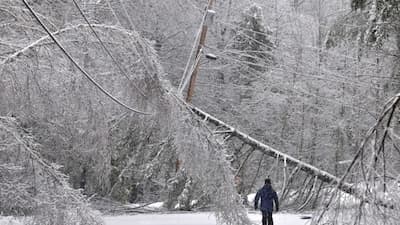
What to Do in an Emergency
Winter storms can disrupt power for hours or even days. Be prepared with essentials like flashlights, a battery-powered radio, warm blankets, and non-perishable food. Avoid using candles as a light source, as they increase fire risk. Portable generators can be a lifesaver but must be used outdoors with proper ventilation to avoid carbon monoxide poisoning. Connect appliances directly to the generator or use a temporary extension cord but never wire it into your home’s system without professional help.
Maximize Winter Energy Efficiency
Combine these safety measures with energy-saving tips from our seasonal guide:
- Seal Drafts: Use weatherstripping and caulking to minimize heat loss.
- Adjust Thermostats: Lower the thermostat when sleeping or away to save on heating bills.
- LED Lighting: Replace old holiday lights with energy-efficient LED versions.
- Smart Heating: Invest in programmable or smart thermostats for more precise temperature control.
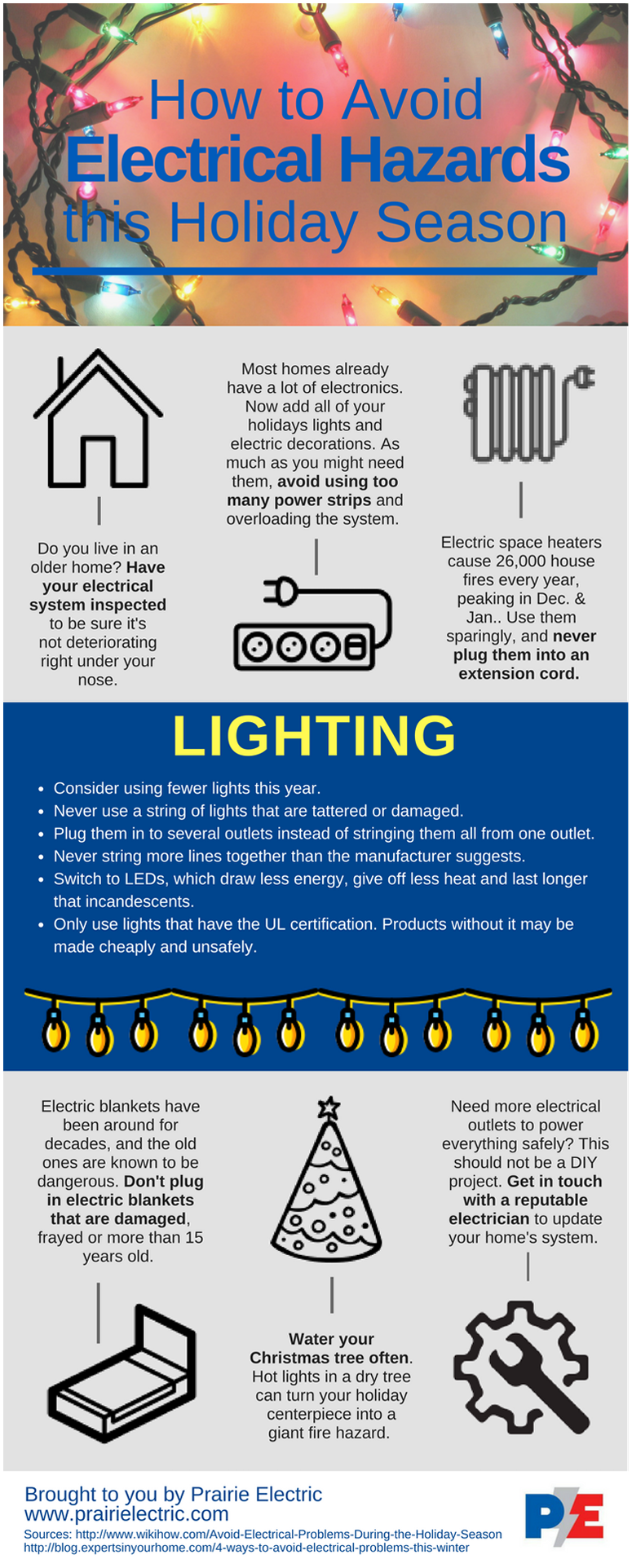
Your Winter Electrical Experts
From safety inspections to energy-efficient upgrades, Prairie Electric is here to help you navigate winter’s challenges. Contact us for professional advice, repairs, and installations to keep your home warm, safe, and efficient all season long.
